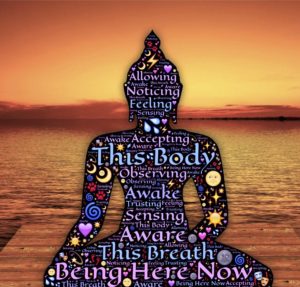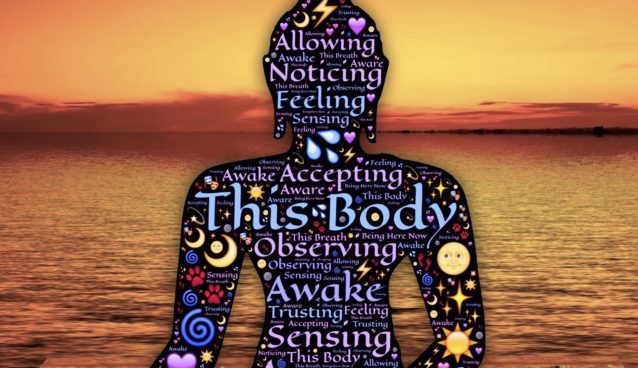Idealism

Table of Contents
Introduction
Idealism is born out of ancient Greek Philosopher Plato’s “Theory of Idea”. According to this doctrine, the ultimate supremacy is of “Idea”. In this way, the real word is “Idealism” but adding letter ‘l’ for euphony, it is known as “Idealism”.
As a philosophical doctrine. Idealism recognises ideals, feelings and ideals more important than material objects and at the same time emphasizes that human development should be according to moral, ethical and spiritual values so that he acquires knowledge of unity in diversity.
“Idealism contends that material and physical universe known to science is an incomplete expression of reality, that it exists but to sub-serve and requires to complement a higher type of reality- a spiritual universe”. – Rusk
Meaning of Idealism
Idealism idolises “Mind” and “Soul” rather than “Matter” and “Body”. Idealism considers the human personality as of Supreme Value and contends that it constitutes the noblest work of God. Idealism asserts that reality is to be found in man’s mind rather than in material nature. It attaches great significance to the study of man and his mind.
Idealism holds that spiritual world is more important than material world. The chief reason is that material is destructive and mortal. Hence, it is untrue and myth. On the contrary, the spiritual world is a world of ideas, feelings and ideals, the knowledge of which reveals the reality of mind and soul. Thus according to Idealism only spiritual world is the essence of reality which is undying, immortal and true.
Idealism recognises human ideas, feelings and ideals more important than natural and scientific phenomena, emphasizes on the study of man and his mind. Idealism emphasizes the study of man more and more because man is endowed with higher intellectual powers and shows greater levels of intelligence and discrimination. Man can mould and modify his surroundings and circumstances according to his needs and requirements. By his own mental, moral and artistic activities man has created the modern cultural, artistic and religious environment for his own good and good of the whole humanity.
In short, idealism identifies itself with spiritualism, with the ultimate soul force which prevades the whole world and keeps the flame of virtue, goodness and generate burning for all times to come.
Definition of Idealism
To make the meaning of Idealism more clear, let us understand some important definitions as given by some eminent scholars —
“Idealistic philosophy takes many and varied forms but the postulate underlying all this is that mind or spirit is essential world stuff” that the true reality is of a mental character”. – J. S. Ross
” Idealists point out that it is mind that is central in understanding the world. To them nothing gives a greater sense of reality than the activity of mind engaged in trying to comprehence its world. For any thing to give a greater sense of reality would be a contradiction in terms because to know any thing real than mind would itself be a conception of mind”. — Brubacher.
Some of the protagonists of Idealism are Socrates, Plato, J. S. Ross, Froebel, Aurobindo Ghosh, Swami Vivekananda, holy scripts like Vedas, Purans, Upnishads and many others.
Fundamental Principles of Idealism
1) Spirit and mind constitute reality :
Idealism believes in two forms of the world – (a) Spiritual world and (b) Material world. Idealists give more importance to Spiritual world in comparison to the material world. They believe that spiritual world is real and the ultimate truth where as the material world is transitory and mortal. According to Idealists, to know the reality of the spiritual world.one has to know the reality of mind and soul.
2) Ideas are real and important than object :
According to Idealists, knowledge of mind and soul can be obtained through ideas only. Ideas are the ultimate reality where as objects die out sooner or later. Ideas are eternal and unchanging.
3) God is the source of all knowledge :
Idealists give full support to the Principle of Unity in Diversity. They believe that implicit in all the diversities is an essential unity. This implicit unifying factor is of spiritual nature which may be called Universal Consciousness or Divinity. This underlying divine force maintains the existence and working of all entities. Idealists call this power as ‘God’,the supreme force which is omnipresent and omnipotent.
4) Man being spiritual is a supreme creation :
To Idealists, man is more important than material nature. Man is endowed with higher intellectual powers and shows greater levels of intelligence and discrimination.
Unlike animals who are slaves of situations and circumstances, man can mould and modify his surroundings and circumstances according to his needs and requirements. He can rise higher and higher and can attain divinity by its own virtuous life, By his own mental, moral and artistic activities man has created the modern cultural artistic and religious environment for his own good and good of the whole humanity.
5) Values are absolute and unchanging :
According to Idealists, the prime aim of life is to achieve Spiritual Values – Truth, Beauty and Goodness. These Spiritual Values are undying and permanent. The realization of these values is the realization of God. In the pursuit of these absolute values, man rises higher and higher in the moral values till he attains ‘Divinity’. For the achievement of these Spiritual Values, man has to harness his knowing, feeling and willing capacities. On fullest use of these capacities, man can achieve highest spiritual values and realises the ultimate true self .
Idealists give much importance to the ‘Self’ of the individual. Hence they insist upon the fullest development of the personality of an individual i.e. to develop ‘Ideal Self’. This self-realisation can only be achieved in society. Hence, Idealists insists on development of social qualities in the form of love, sympathy, fellow-feeling and co-operation for the good of all and advocates no discrimination among human beings on the basis of caste, creed, sex, race or status.
Idealism and Education
The credit of introducing Idealism in Education goes to Plato, Pestalozzi and Froebel who are believers of Idealism. According to them Idealism pervades all the creation and it is undying, unlimited and an ultimate force which reigns supreme over all mind and matter. They all advocate its great importance in education and lay more emphasis on aims and principles of education than on methods, aids and devices.
Idealism and Aims of Education
The following are the aims of education according to the philosophy of Idealism :–
- Self-realisatiion of Personality
- To ensure Spiritual Development
- To cultivate Truth, Beauty and Goodness
- Conservation, Promotion and Transmission of Cultural Heritage
- Conversion of Inborn Nature into Spiritual Nature
- Development of Intelligence and Rationality
- Cultivation of Moral Value
Idealism and Curriculum
While structuring curriculum, Idealists give more importance to thought, feelings, ideals and values than to the child and his activities. They hold that curriculum should be concerned with the whole humanity.
Views of Plato about curriculum
According to Plato, ” The aim of life is to realise God which is possible only by pursuing high ideals namely, truth, beauty and goodness. These high ideals can be attained by three types of activities namely, aesthetic, intellectual and moral.
Under intellectual activities, Plato includes Language, Literature, History, Geography, Maths and Science.
Under aesthetic activities, he include Art and Poetry.
Under Moral activities he includes Religion, Metaphysics and Ethics.
Views of Herbert about curriculum
According to Herbert, ” The Idealistic aim of education is the promotion of moral values”. Hence he gave the prime importance to subjects like Literature, History, Art, Music, Poetry and secondary place to scientific subjects.
Views of Nunn about curriculum
According to Nunn, ” It is the function of school to promote and maintain morality and the historical tradition to preserve and develop its achievement more and more.
For physical, social, moral and religious activities, Nunn includes Physical Culture, Sociology and Religion as subjects.
For literary and aesthetic activities, Nunn recommended subjects like Literature, Art, Music. Handicraft, History, Geography, Science and Mathematics.
Views of Ross about curriculum
Ross divided human activities into two categories – (i) Physical or Healthy Living and (ii) Spiritual
Under physical activities, Ross advocated Health Education and Skills as subjects.
Under spiritual activities, Ross advocated Literature, Language, History, Geography, Science and Mathematics for intellectual activities, Ethics for moral development, Religion and Metaphysics for religious activities.
Idealism and Method of Teaching
Idealism considered that it is better to accept the traditional method of teaching instead of adopting any new method.
- Teaching through Reading
- Teaching through Lecturing
- Teaching through Discussion
- Teaching through Imitation
Two famous Idealist Philosophers, Pestalozzi and Froebel have made notable contribution in respect of method of teaching. Both of them formulated their methods of teaching by laying stress on ‘Self-Activity’ of the child.
Pestalozzi called his method of teaching as “Object Lesson”. The main characteristics of his method of teaching is that it tries to make mental development of the child harmonious by making arrangement to teach him on the basis of his ‘Sense Perception’ and through direct experiences of life.
Froebel invented “Kindergarten” system of education. In this method, Play is an integral part of education. Along with Play, Froebel provided different types of ‘Gifts and Occupations’ for the child.
Idealism and Role of Teacher
Teacher, according to Idealism, should have high degree of Self-Knowledge, Self-Dynamism and essential qualities of Spiritualism.
Role of Teacher suggested by Idealists are —
- Role of teacher is as a Spiritual guide for the child.
- Teacher should shape the individuality of the child to a life of purity, virtue and great achievements.
- Teacher being an ideal person, guides the child with such genuine love, affection and sympathy that he attains his full mental and spiritual development.
Practical Implications of Idealism in the field of Education
- Universal Education : Idealism holds that every human being must receive a chance to be educated to understand ‘Self’ and all pervading force. The aim of modern education is also universalisation of education.
- Conservation, Promotion and Transmission of Culture : Like Idealism, one of the aims of modern education is also the conservation, promotion and transmission of cultural heritage.
- Development of Moral Character : Idealistic education emphasises the inculcation of highest values namely truth, beauty and goodness. This will develop the moral character of child. Moral education is an integral part of modern education.
- Exhalation of Personality : Idealism advocates to lay great stress on the exhalation of human personality. Modern education is all about all round development of a child.
- School as Social Organisation : Idealist believe that school is a social organisation and it helps in the socialisation of child.



